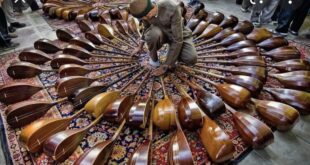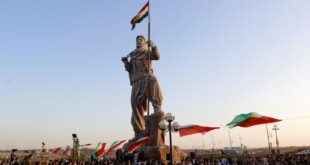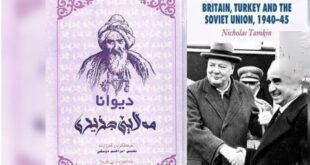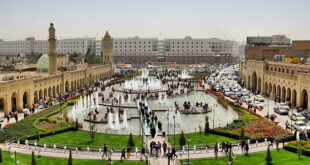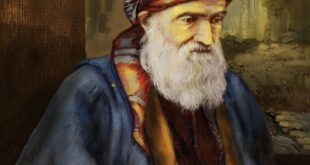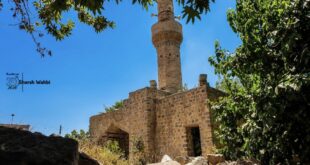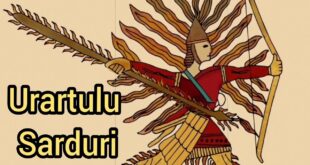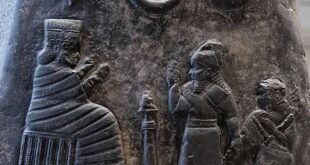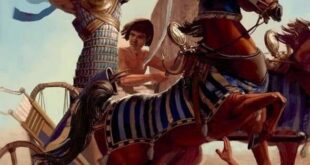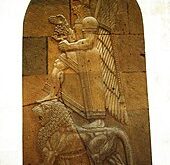Yarsanism, Ahl-e Haqq or Kaka’i (Kurdish: یارسان, romanized: Yarsan Persian: اهل حق), is a syncretic religion founded by Sultan Sahak in the late 14th century in western Iran. The total number of followers of Yarsanism is estimated to be just over half a million in Iran and Iraq who are mostly Kurds from …
Read More »Kirkuk (ancient: Arrapha)
Kirkuk (ancient: Arrapha) At Ta’min Governorate. In Iraqi Kurdistan, near the Khasa River, 250 km north of Baghdad. The modern city and also the site of the ancient Hurrian and Assyrian capital of Arrapha, strategically located, of great importance to the Assyrians. Dates: Assyrian period, late 3rd and 2nd millenium BC; flourished …
Read More »Churchill and a Poem of Malay Jaziri
I The diary book of the assassinated Kurdish journalist Mousa Enter (1920-1922) is concentrating on the historical events and narration about a great number of the Kurdish individual in the 20th century, some of the Turks and foreigner personalities that had relations with Kurd and its issues. In 1956 Mousa …
Read More »Modern history of Kurdistan
Modern history of Kurdistan 1918: Sheikh Mahmoud Barzinji becomes governor of Suleimaniah under British rule. He and other Kurdish leaders who want Kurdistan to be ruled independently of Baghdad rebel against the British. He is defeated a year later. [1] 1923: The Treaty of Lausanne between Turkey and the allied …
Read More »Melayê Cizîrî
Melayê Cizîrî (born Shaikh Ahmad), penname Nîşanî (Kurdish: مەلای جزیری, romanized: Melayê Cizîrî, born; Cizre, c. 1570 – died c. 1640) was an Kurdish poet who laid the foundations for Kurdish poetry. Born in Cizre of Bohtan around year 1570, Cizîrî was a Sufi who spoke Kurdish, Arabic and Persian. He only expressed …
Read More »The Great Mosque of Khurmal, a national treasure
The great mosque of Khurmal is one of the ancient mosques of Kurdistan which is located in Khurmal district which is a small historic town in Halabja province. This mosque and its minaret were created by Abdullah, the grandson of the second caliph Alkattab, during the Hasanwayhids era (959-1015), …
Read More »Sarduri II ( Kings of Urartu )
Sarduri II (ruled: 764–735 BC) was a King of Urartu, succeeding his father Argishti I to the throne. The Urartian Kingdom was at its peak during his reign, campaigning successfully against several neighbouring powers, including Assyria. Sarduri II King of Urartu Reign 764–735 BC Predecessor Argishti I Successor Rusa I Issue Rusa I Father Argishti I Mother …
Read More »Kassites
It is thought that the Kassites originated as tribal groups in the Zagros Mountains to the north-east of Babylonia. Their leaders came to power in Babylon following the collapse of the ruling dynasty of the Old Babylonian Period in 1595 BC. The Kassites retained power for about four hundred years …
Read More »Hittite
Hittite, member of an ancient Indo-European people who appeared in Anatoliaat the beginning of the 2nd millennium BCE; by 1340 BCE they had become one of the dominant powers of the Middle East. Probably originating from the area beyond the Black Sea, the Hittites first occupied central Anatolia, making their …
Read More »Urartian originals
A modern depiction of the god Ḫaldi based on Urartian originals The Urartian pantheon seems to have comprised a diverse mix of Hurrian, Akkadian, Armenian, and Hittite deities.[75] Starting with the reign of Ishpuini, the Urartian pantheon was headed by a triad made up of Ḫaldi (the supreme god), Theispas (Teisheba, …
Read More » History of Kurdistan
History of Kurdistan
